How to Choose a Reputable Solar Installer (S.O.L.A.R. Formula)
Switching to solar is one of the most important investments a household or business can make. Choosing the right installer is just as crucial as choosing the panels themselves. With Ramselec Solar, clients gain peace of mind through experience, quality assurance, and a transparent process. This guide introduces the S.O.L.A.R. formula a clear framework for selecting a reputable solar installer.
Table of Contents
The S.O.L.A.R. Formula Explained
A – Authentic Reviews and Reputation
R – Reliable Products and Warranty
The Financial Benefits of Choosing the Right Solar Installer
Why the Right Installer Matters
Steps Before Choosing an Installer
The Hidden Costs of Choosing the Wrong Installer
Key Takeaways
Use the S.O.L.A.R. formula when selecting an installer
Assess skills, licensing, and reviews before committing
Ensure access to ongoing support and reliable products
Ask the right questions to avoid costly mistakes
The S.O.L.A.R. Formula Explained
Choosing a solar installer can be simplified with the S.O.L.A.R. formula:
S – Skills and Experience
A reputable solar installer should demonstrate technical expertise, proven experience, and accreditation. In Australia, ensure the installer is Clean Energy Council (CEC) accredited. This guarantees that the system design and installation meet industry standards. According to the Clean Energy Council, only accredited professionals can access solar rebates and incentives.
Look for installers with at least 5 years of experience in the field.
Ask for case studies or project examples.
Confirm whether the team has worked on both residential and commercial projects.
This depth of experience helps ensure that unforeseen issues such as roof shading, structural concerns, or grid connection requirements are handled effectively.
O – Ongoing Support
Solar is a long-term investment. Reliable after-sales service is essential. A quality installer will provide ongoing support, warranty coverage, and performance monitoring solutions. At Ramselec Solar, services extend beyond installation to ensure long-lasting system performance.
A strong service agreement should cover:
System monitoring and alerts for performance issues
Prompt repairs if faults occur
Warranty claim support to simplify the process
Guidance on upgrades when new technology becomes available
This ongoing relationship is what separates a short-term contractor from a long-term energy partner.
L – Licensing and Compliance
Confirm that the installer holds the necessary licences and complies with local regulations. This includes electrical licences and compliance with Australian Standards. Information on licensing can be verified through Energy Safe Victoria and other state-based regulators.
Every solar installer in Australia must:
Hold an electrical contractor licence
Use CEC-accredited designers and installers
Adhere to Australian Standards (AS/NZS 5033) for photovoltaic systems
Failure to meet these standards can void warranties and rebates. Checking licences before signing a contract prevents costly mistakes later.
A – Authentic Reviews and Reputation
Client feedback offers a realistic view of the installer’s professionalism. Look for independent reviews, case studies, and project results. A strong reputation is built on trust, reliability, and consistent delivery of results. Platforms like Solar Quotes provide authentic reviews that can help guide decisions.
R – Reliable Products and Warranty
High-quality solar panels and inverters come with manufacturer warranties of 10–25 years. Reliable installers partner with trusted brands and ensure warranty claims are straightforward. Inferior products often lead to reduced efficiency and higher maintenance costs over time.
It’s also important to understand the difference between:
Product warranty – covers defects in manufacturing (usually 10–15 years)
Performance warranty – guarantees a percentage of output for 20–25 years
A reputable installer will clearly explain the differences and ensure all documents are provided for future claims.
The Financial Benefits of Choosing the Right Solar Installer
Solar energy is not only an environmental decision but also a financial one. A reputable installer ensures the system is designed to maximise return on investment. This includes:
Accurate system sizing – avoiding over- or under-capacity ensures efficiency.
Optimal positioning – professional installers know how to capture maximum sunlight throughout the year.
Access to rebates – CEC-accredited installers enable eligibility for federal and state incentives.
Why the Right Installer Matters
Solar is not just about panels. Proper installation ensures:
Maximum efficiency of the system
Long-term savings on energy bills
Safety and compliance with Australian regulations
Stronger return on investment
A poorly chosen installer may result in reduced system output, safety issues, and financial loss.
Steps Before Choosing an Installer
Verify credentials – Check CEC accreditation.
Request a site assessment – A professional should inspect roof orientation, shading, and load capacity.
Ask about warranties – Both product and workmanship warranties are important.
Compare quotes – Assess not just price but quality of components.
Check customer support – Ensure assistance is available long-term.
The Hidden Costs of Choosing the Wrong Installer
Price is a natural consideration, but low-cost solar systems often come with hidden risks. Poor installation can lead to:
Reduced energy efficiency
Roof leaks or structural damage
Unsafe electrical connections
Voided product warranties
These problems can erase any upfront savings. Instead, focus on value: a fair price for high-quality equipment, professional installation, and strong after-sales support.
Future-Proofing with the Right Installer
Solar technology is evolving quickly. The rise of battery storage and smart home integration means today’s decisions must allow for tomorrow’s upgrades. A reputable installer ensures systems are designed with flexibility in mind for example, leaving space for batteries or using hybrid inverters. Partnering with the right installer means staying ready for advances in solar and energy efficiency without needing major overhauls.
Conclusion
Selecting the right solar installer is not about choosing the lowest price, but about securing long-term value, efficiency, and reliability. By following the S.O.L.A.R. formula, clients can confidently invest in solar energy and achieve sustainable outcomes. For trusted installation and expert guidance, get in touch with Ramselec Solar today.
FAQs
1. How do I know if a solar installer is accredited?
Check the Clean Energy Council website for accredited professionals.
2. What warranties should I expect from a solar system?
Most panels come with 20–25 year performance warranties, and inverters typically include 5–10 year warranties.
3. Are cheap solar installers worth considering?
Low-cost options may use inferior products or lack proper accreditation, risking long-term efficiency and safety.
4. How long does a solar installation take?
Most residential installations take 1–2 days, depending on system size and site conditions.
5. Can I add batteries later to my solar system?
Yes, many systems are battery-ready and can be upgraded to a hybrid setup.
6. What size solar system is best for my home?
This depends on energy usage, roof size, and budget. A site assessment provides accurate recommendations.







